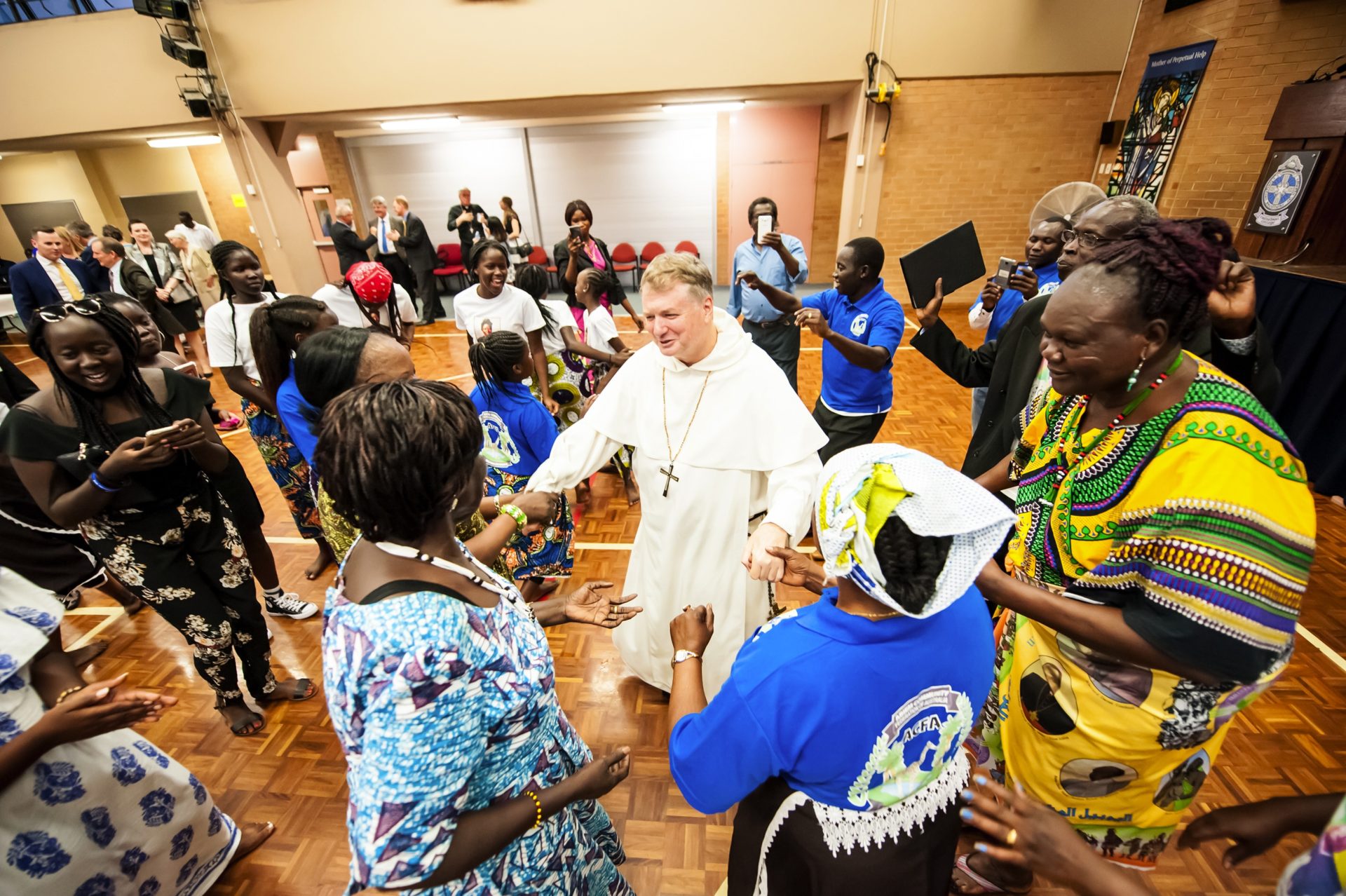
On the feast of the patron saint of victims of slavery Archbishop Anthony Fisher OP reminded the faithful that modern slavery, while largely hidden, is still embedded in the global economy, including Australia:
“Most people think human trafficking and slavery a thing of the past that need not concern them. But as we speak, there are 4,300 slaves in Australia and 40.3 million slaves worldwide,” Archbishop Fisher told those attending Mass on the Feast of St Josephine Bakhita – patron saint of Sudan and a former slave who was canonised in 2000 – in St Mary’s Cathedral on Thursday evening.
In addition to the traditional practice of buying, selling and owning slaves, modern forms of slavery also encompass human-trafficking, forced labour and forced marriages. All are denounced by the Church as serious offences against the human person.
Eradicating slavery is an issue for everyone, Archbishop Fisher said.
“The call to eradicate modern slavery is to make a choice for respecting the intrinsic and inalienable dignity of every human person … Jesus reminds us in our Gospel tonight that our neighbour includes everyone, not just those whom it’s convenient or attractive to help.”
The occasion was a major event for Sudanese Catholics as well. The Sudanese-Australian Catholic community- filled the front rows of the Church with their colourful traditional vestments and inspiring songs.
One of them, John, a parishioner at St Patrick’s Blacktown, remarked on the mark modern slavery has on his community, affirming slavery’s modern existence.
“Yes, there are Sudanese people in Australia who have escaped from slavery,” he told The Catholic Weekly.
One advocate for Sudanese migrants in Australia remarked that even in this country many Sudanese are exploited at work with unfair hours and lack of proper pay:
“Many cannot speak English well and some cannot read. Certain industries do not let them know their rights as workers.”
Archbishop Fisher also announced imminent plans to begin slavery-proofing the Sydney Archdiocese’s commercial practices and relationships via the Archdiocesan Anti-Slavery Taskforce headed by former Australian Ambassador to the Vatican, John McCarthy QC (see points below).
Archbishop Fisher also urged governments and business to consider the effect their purchasing power has on global slavery.
“If we dedicate ourselves to the task, we could indeed see slavery effectively abolished in our own lifetime … The greatest responsibility [to end slavery] lies with organisations such as business, governments, and churches because they have such great purchasing power … buying good [instead].”
Despite the challenges involved, Archbishop Fisher said he remained hopeful that, as a nation, Australia will step up and make the right decision in relation to the issue.
“I look forward,” he said, “to a day when we speak of slavery in the past tense.”
Actions the Sydney Archdiocese will be taking to combat slavery:
Consultations – the Archdiocesan Anti-Slavery Taskforce will consult with Sydney Catholic Schools regarding purchases of equipment e.g stationery.
Pilot programs – Sydney CatholicCare, assisted by the archdiocesan Anti-Slavery Taskforce, will pilot schemes with contracted cleaners to eradicate exploitation in the cleaning industry.
Awareness – programs in Sydney Catholic primary and secondary schools will raise awareness of the scourge of modern slavery.
